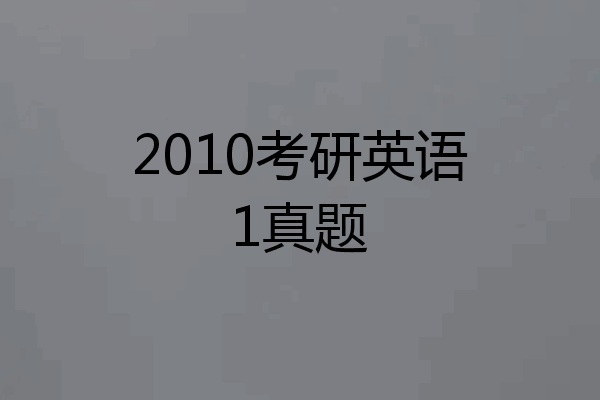
萱萱小宝
Text 1 Of all the changes that have taken place in English-language newspapers during the past quarter-century, perhaps the most far-reaching has been the inexorable decline in the scope and seriousness of their arts coverage.(T1) It is difficult to the point of impossibility for the average reader under the age of forty to imagine a time when high-quality arts criticism could be found in most bit-city newspapers. Yet a considerable number of the most significant collections of criticism published in the 20th century consisted in large part of newspaper reviews. To read such books today is to marvel at the fact that their learned contents were once deemed suitable for publication in general-circulation dailies. We are even farther removed from the unfocused newspaper reviews published in England between the turn of the 20th century and the eve of World War 2,at a time when newsprint was dirt-cheap and stylish arts criticism was considered an ornament to the publications in which it appeared. In those far-off days, it was taken for granted that the critics of major papers would write in detail and at length about the events they covered. Theirs was a serious business. and even those reviews who wore their learning lightly, like George Bernard Shaw and Ernest Newman, could be trusted to know what they were a out. These men believed in journalism as a calling , and were proud to be published in the daily press. 'So few authors have brains enough or literary gift enough to keep their own end up in journalism,' Newman wrote, "that I am tempted to define "journalism" as "a term of contempt applied by writers who are not read to writers who are".' Unfortunately, these critics are virtually forgotten. Neville Cardus, who wrote for the Manchester Guardian from 1917 until shortly before his death in 1975, is now known solely as a writer of essays on the game of cricket. During his lifetime, though, he was also one of England's foremost classical-music critics, and a stylist so widely admired that his Autobiography (1947) became a best-seller. He was knighted in 1967,the first music critic to be so honored. Yet only one of his books is now in print, and his vast body of writings on music is unknown save to specialists. Is there any chance that Cardus's criticism will enjoy a revival? The prospect seems remote. Journalistic tastes had changed long before his death, and postmodern readers have little use for the richly uphostered Vicwardian prose in which he specialized. Moreover, the amateur tradition in music criticism has been in headlong retreat.21. It is indicated in Paragraphs 1 and 2 thatA arts criticism has disappeared from big-city newspapers.B English-language newspapers used to carry more arts reviews.C high-quality newspapers retain a large body of readers.D young readers doubt the suitability of criticism on dailies.22. Newspaper reviews in England before World War 2 were characterized by A free themes.B casual style.C elaborate layout.D radical viewpoints.23. Which of the following would shaw and Newman most probably agree on?A It is writers' duty to fulfill journalistic goals.B It is contemptible for writers to be journalists.C Writers are likely to be tempted into journalism.D Not all writers are capable of journalistic writing.24. What can be learned about Cardus according to the last two paragraphs?A His music criticism may not appeal to readers today.B His reputation as a music critic has long been in dispute.C His style caters largely to modern specialists.D His writings fail to follow the amateur tradition.25. What would be the best title for the text?A Newspapers of the Good Old DaysB The Lost Horizon in NewspapersC Mournful Decline of JournalismD Prominent Critics in Memory


罗曼蒂克123
你可能是对其中几个主要单词的意思没有弄明白,vast body of约等于a great number of 许多,大量;save是“除了”的意思,约等于except.

Joy9999999
原因:save to是个固定搭配的介词短语,是除了的意思。按字面解释,save表示仅限于的含义,和to连用,整个短语算是介词成分。
一、his
1、含义:adj. 他的。pron. 他的。
2、用法:
直接源自古英语的he,意为他的。
He claims it was his idea.
他声称这是他的主意。
二、print
1、含义:v. 印刷;出版;打印;铭刻。n. 印刷字体;版画;印刷;印记;印刷物;印花。adj. 印刷的。
2、用法:
print的基本意思可指印刷品,即印成的“图画,图案,版画等”或由底片印出的“照片”,是可数名词。
print也可表示“印刷字体”,是不可数名词。
How many copies shall we print from the negative?
用这张底片我们要印多少张相片?
三、body
1、含义:n. 身体;主体;正文;主要部分;尸体;躯体;团体。v. 赋…以形体。
2、用法:
body的基本意思是“身体”“躯体”“躯干部”,强调的是人相对于soul, mind, spirit的躯体,而不是人或健康状况,是可数名词。
body表示“躯体”除用于人或动物外,还可用于车身、船身、机身、正文、主体等。
Alcoholic drink can have a bad effect on your body.
含酒精的饮料会对你身体有很坏的影响。
四、music
1、含义:n. 音乐;美妙的声音;乐谱。
2、用法:
music是抽象名词,不可数,可作“音乐,乐曲”解。泛指“音乐”时不与冠词连用,特指“乐曲”时或music前有形容词最高级修饰时,可与定冠词、物主代词、指示代词等连用。“一首乐曲”是a piece of music,“几首乐曲”是several pieces of music。
He is interested in music.
他对音乐有兴趣。
五、save
1、含义:v. 救;节省;保存。n. 救援,救助。
2、用法:
save的基本意思是采取措施把人或动物从险境中解救出来或使其“脱离危险,免受损失”,可指从危险、灾难、困难、错误中救起某人或拯救某人的性命,也可指人储存金钱、食物、节省时间(以备自救)等,有时还可指人“保全面子、名声”等。
Children should learn to save.
孩子们应学会储蓄。

justjoshua
这里有一份最全的考研英语历年真题资料分享给你
链接:
通过不断研究和学习历年真题,为考生冲刺阶段复习提分指点迷津,做真题,做历年真题集,对照考纲查缺补漏,提高实战素养,制定做题策略,规划方向;
若资源有问题欢迎追问!